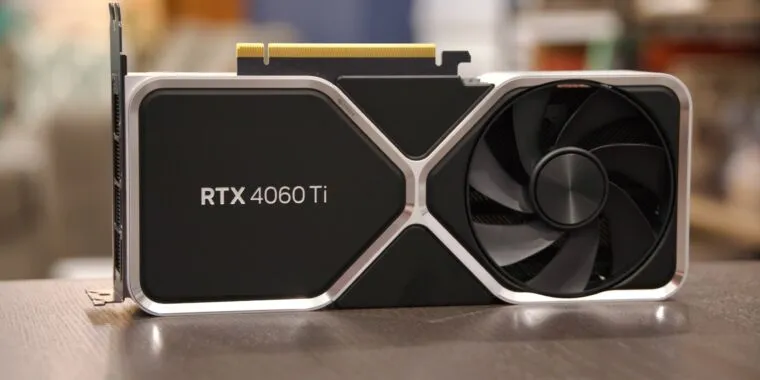- cross-posted to:
- [email protected]
- [email protected]
- [email protected]
- cross-posted to:
- [email protected]
- [email protected]
- [email protected]
There is a discussion on Hacker News, but feel free to comment here as well.
This is the best summary I could come up with:
The performance gains were small, and a drop from 12GB to 8GB of RAM isn’t the direction we prefer to see things move, but it was still a slightly faster and more efficient card at around the same price.
In all, 2023 wasn’t the worst time to buy a $300 GPU; that dubious honor belongs to the depths of 2021, when you’d be lucky to snag a GTX 1650 for that price.
But these numbers were only possible in games that supported these GPUs’ newest software gimmick, DLSS Frame Generation (FG).
The technology is impressive when it works, and it’s been successful enough to spawn hardware-agnostic imitators like the AMD-backed FSR 3 and an alternate implementation from Intel that’s still in early stages.
And DLSS FG also adds a bit of latency, though this can be offset with latency-reducing technologies like Nvidia Reflex.
But to put it front-and-center in comparisons with previous-generation graphics cards is, at best, painting an overly rosy picture of what upgraders can actually expect.
The original article contains 787 words, the summary contains 168 words. Saved 79%. I’m a bot and I’m open source!


